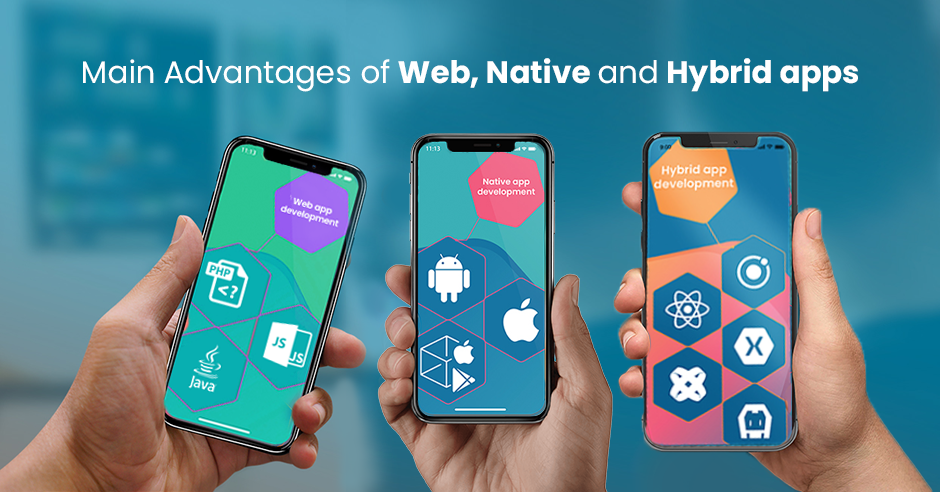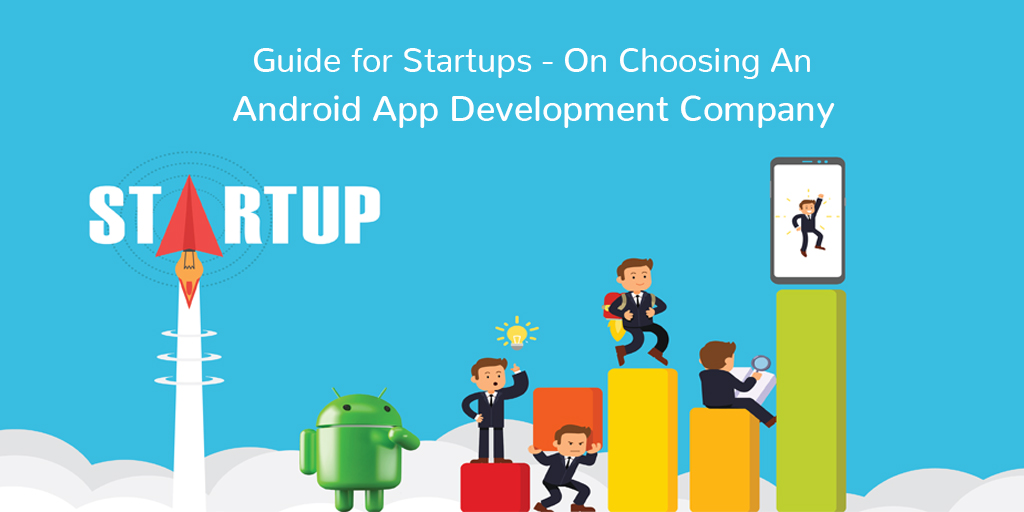
Main Advantages of Web, Native and Hybrid Apps
In the rapidly evolving digital landscape, selecting the right type of application—whether Web, Native, or Hybrid—is crucial for achieving your business objectives and satisfying user needs. This guide explores the main advantages of Web Apps, Native Apps, and Hybrid Apps, and provides insights into how these app types can impact your development strategy.
1. Understanding Web, Native, and Hybrid Apps
To make an informed decision, it's essential to understand what distinguishes Web Apps, Native Apps, and Hybrid Apps from one another.
1.1 Web Apps
Web Apps are applications that run within a web browser and are built using web technologies such as HTML, CSS, and JavaScript. They are designed to be accessible from any device with a web browser, making them highly versatile.
1.2 Native Apps
Native Apps are developed for specific operating systems, like iOS or Android, using platform-specific programming languages. These apps are downloaded from app stores and offer a tailored experience optimized for the operating system they are built for.
1.3 Hybrid Apps
Hybrid Apps combine the features of both Web and Native Apps. They are created using web technologies but are wrapped in a native container, allowing them to be installed from app stores and access certain native device features. Popular frameworks for hybrid app development include Ionic, React Native, and Flutter.
2. Advantages of Web Apps
Web Apps offer several distinct advantages that can be highly beneficial depending on your project’s needs.
2.1 Cross-Platform Accessibility
One of the most significant advantages of Web Apps is their cross-platform accessibility. A single Web App can be accessed from any device with a web browser, whether it's a desktop, laptop, tablet, or smartphone. This universality eliminates the need for separate apps for different platforms, simplifying development and maintenance.
2.2 Cost-Effectiveness
Web Apps are generally more cost-effective compared to developing Native Apps for multiple platforms. With a unified codebase, the cost of development and ongoing maintenance is significantly lower. This cost efficiency makes Web Apps an attractive option for startups and small businesses.
2.3 Easy Updates and Maintenance
Updating a Web App is straightforward and requires no action from the user. Since updates are made on the server side, all users immediately access the latest version of the app without needing to download or install updates manually. This streamlined update process reduces maintenance efforts and ensures users always have the most current version.
2.4 No App Store Approval Required
Web Apps do not need to undergo an app store approval process, which can be time-consuming and restrictive. This absence of app store constraints accelerates the launch process and reduces potential delays due to approval rejections or compliance issues.
2.5 Unified User Experience
Web Apps deliver a consistent user experience across different devices. Users can expect a uniform interface and functionality regardless of the device they use, enhancing usability and reducing the learning curve associated with different platforms.
3. Advantages of Native Apps
Native Apps offer unique benefits, particularly in terms of performance and user experience.
3.1 Performance and Speed
One of the most notable advantages of Native Apps is their superior performance. Native Apps are optimized for the specific operating system they are built for, which allows them to leverage the full capabilities of the device’s hardware and software. This results in faster load times, smoother animations, and a generally more responsive experience.
3.2 Access to Device Features
Native Apps have direct access to a wide range of device features, such as the camera, GPS, and microphone. This capability allows developers to create more feature-rich and immersive applications that can fully utilize the device’s capabilities.
3.3 Offline Functionality
Many Native Apps offer offline functionality, enabling users to access app features and content without an active internet connection. This offline capability is a significant advantage for users who need to use the app in areas with unreliable or limited connectivity.
3.4 Enhanced User Experience
Native Apps provide a seamless and intuitive user experience by utilizing the native UI/UX elements of the operating system. This native integration results in a more familiar and engaging experience, which can lead to higher user satisfaction and retention.
3.5 Better Security
Native Apps often benefit from enhanced security features provided by the operating system. They can utilize advanced security measures such as biometric authentication and secure data storage, making them less vulnerable to common web-based security threats.
4. Advantages of Hybrid Apps
Hybrid Apps offer a blend of Web and Native App advantages, making them a versatile choice for many projects.
4.1 Cross-Platform Development
Hybrid Apps support cross-platform development, allowing developers to write a single codebase that can be deployed on multiple platforms, including iOS and Android. This approach reduces development time and costs compared to creating separate Native Apps for each platform.
4.2 Access to Native Features
Although Hybrid Apps are built using web technologies, they are encapsulated within a native container that provides access to device features. This hybrid app development approach enables the integration of native APIs and hardware, offering a more robust and feature-rich experience than traditional Web Apps.
4.3 Faster Time to Market
The ability to use a single codebase for multiple platforms speeds up the development process, allowing Hybrid Apps to be launched more quickly than Native Apps. This faster time to market can be a significant competitive advantage, enabling businesses to reach their audience sooner.
4.4 Easier Maintenance
Maintaining Hybrid Apps is generally simpler than managing multiple Native Apps. With a single codebase, updates and bug fixes can be applied once and will be reflected across all platforms. This centralized maintenance approach ensures consistency and reduces the complexity of managing different versions of the app.
4.5 Cost Efficiency
Hybrid App development is often more cost-effective than Native App development, especially for projects that need to be deployed across multiple platforms. By leveraging a single codebase, businesses can lower development and maintenance costs while still providing a broad reach.
5. Choosing the Right Type of App for Your Needs
Selecting between Web, Native, and Hybrid Apps depends on various factors, including project requirements, budget, timeline, and target audience. Here’s a guide to help you make the right choice:
5.1 Project Requirements
-
Web Apps are ideal for applications that need to be accessible from any device with a browser and can function effectively with an internet connection. They are well-suited for content-driven applications and online services.
-
Native Apps are best for applications that require high performance, access to device features, and offline functionality. They are suitable for complex applications, games, and apps that need a seamless integration with the operating system.
-
Hybrid Apps are a good choice for projects that need to be available on multiple platforms with a single development effort. They offer a balance between cost and access to native features, making them suitable for a wide range of applications.
5.2 Budget and Resources
-
Web Apps are generally the most cost-effective option, especially if you need to reach users across various platforms without significant investment in development.
-
Native Apps require a higher budget due to the need for platform-specific development. However, they offer superior performance and a tailored user experience.
-
Hybrid Apps provide a middle ground in terms of cost and performance. They are more affordable than Native Apps and offer better access to native features compared to Web Apps.
5.3 Timeline
-
Web Apps can be developed and launched quickly, making them suitable for projects with tight deadlines.
-
Native Apps may take longer to develop due to the need for separate codebases for different platforms.
-
Hybrid Apps can be developed faster than Native Apps, but may require additional time for optimization and testing across multiple platforms.
5.4 Target Audience
-
Web Apps are ideal for reaching a broad audience across different devices and platforms.
-
Native Apps are suited for users who prefer a high-quality, platform-specific experience.
-
Hybrid Apps are effective for reaching users on multiple platforms with a single development effort.
Conclusion
Each app type—Web, Native, and Hybrid—offers unique advantages that cater to different needs and scenarios. Web Apps provide cross-platform accessibility and cost efficiency, Native Apps excel in performance and feature access, and Hybrid Apps offer a balance between development efficiency and native functionality.
By carefully evaluating your project’s requirements, budget, timeline, and target audience, you can make an informed decision about which type of app will best serve your needs. Understanding the strengths and limitations of Web, Native, and Hybrid Apps will enable you to create effective and engaging digital experiences that resonate with your users.
In the dynamic world of app development, staying informed about the advantages of each app type will help you make strategic choices and achieve success in your digital endeavors. Whether you choose a Web App, Native App, or Hybrid App, leveraging the right approach will help you meet your goals and deliver exceptional value to your users.

















 Whatsapp
Whatsapp
 Email
Email


